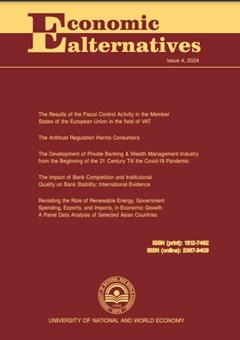Predictors of the Likelihood of Continuous Usage of Online Shopping Post-COVID-19
Authors: Nina Angelovska, Julijana Angelovska
Abstract
Government’s response to the COVID-19 outbreak resulting in imposed socialdistancing measures, lockdowns and closing of economies triggered the acceleration of e-commerce growth globally. Driven by necessity consumers shifted from traditional to online shopping, but the main question of interest to practitioners and researchers is: Will this changed behaviour last post-COVID-19? We aim in this study to respond and contribute to the insufficient understanding of the factors that can predict the likelihood of continuous usage of online shopping post-COVID-19. To achieve this goal, we use survey data from 2.082 respondents, collected in North Macedonia during the period of social distancing measures (November 2020). We explore the associated predictors of the likelihood of online shopping continuity behaviour post-COVID-19, employing binary logit regression. We found that age, data protection and conventional motives are not significant predictors while gender, employment status, online shopping frequency, online shopping experience, payment security and commencement of online triggered by COVID-19 showed as statistically significant predictors of the likelihood of continuous online shopping post-COVID-19.

